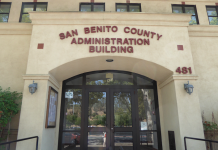By Mindy Romero and Juan Novello
California’s Latino community is experiencing the brunt of the Covid-19 pandemic’s impact. About 50 percent of the state’s more than 62,000 cases, and 33 percent of its total deaths are Latino, more than any other racial or ethnic group in California.
While early economic data is limited for demographic groups, we know that as the largest racial or ethnic group in the state, Latinos are almost certain to feel the greatest economic impact too. As we rebuild the California economy, we must not leave Latinos behind as we did in the recession of 2008. California will not fully recover if its Latino community does not.
Within the two months since Covid-19 descended on our state and nation, we have already entered into what appears to be the beginning of deep global recession. Millions of Californians have suddenly found themselves out of work, businesses are in peril and the state is likely facing significant budget cuts for some time to come.
Before Covid-19, Latinos have long experienced disparate outcomes in every indicator that contributes to economic well-being—employment rates, income levels, educational achievement, housing affordability and entrepreneurship. Many Latinos live paycheck to paycheck and experience suffocating barriers to entering the middle class and beyond.
Now Covid-19 is directly impacting industries where Latinos are employed the most. A quarter of Latino employment is in service occupations and nearly another quarter in sales and office occupation. In many of these jobs, Latinos don’t have the ability to stay home.
Fifty-five percent of students in our K-12 public school system are Latino. These students along with Latinos enrolled in college are now navigating through the complications and uncertainty of distance learning with potential long-term impacts on their educational trajectories.
Latinos own less than 24 percent of all businesses in the state, but they experience far less revenue—pre-Covid-19—than non-Latino owned businesses. Many of these Latino entrepreneurs are now being forced to adapt quickly to a new market with little to no help, or face the reality of closing their doors.
Recently, Gov. Gavin Newsom formed the Task Force on Business and Jobs Recovery to develop recommendations for an economic plan of action that works for all of California, focusing on regions and communities hit hardest by the pandemic.
We look forward to learning more about their approach and urge them to hold their work accountable to tangible outcomes for the Latino community.
As the current crisis continues to unfold, a more complete picture of the workers and industries affected will emerge. We must avoid the failed policies of the past and ensure economic data inclusive of the Latino community drives new policy creation.
But California’s leaders should not just be focused on economic recovery from this current recession. They must commit to eliminate the entrenched structural causes of economic inequality felt by Latinos and other racial or ethnic groups. The same long-standing systemic inequality that has been laid bare by Covid-19.
Strengthening the Latino community for the long run—not just helping it survive—must be a core part of their efforts and those of the legislature. Only then will more Latinos, nearly 40 percent of the state’s population, be able to reach the California dream, enter the middle class and have equitable economic representation in our state.
Mindy Romero and Juan Novello wrote this commentary for CalMatters.org.









